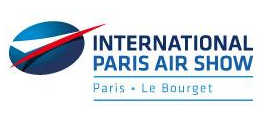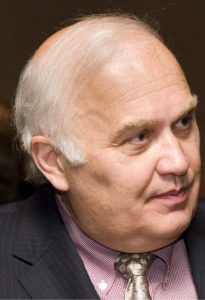Leeham News and Analysis
There's more to real news than a news release.
Pontifications: The elephant in the room
June 17, 2019, © Leeham News: The Paris Air Show opens today and the elephant in the room is the Boeing 737 MAX.
There is no telling when the airplane will get FAA approval to return to service. According to some news reports, Boeing will hasn’t turned  over the MCAS revisions to the FAA for review, testing and approval.
over the MCAS revisions to the FAA for review, testing and approval.
The acting administrator of the FAA said he expects the MAX to be back in the air by the end of the year. Some leapt to the conclusion this means December—and it may, but let’s remember September, October and November are before the “end of the year,” too.
There’s no telling how other global regulators will act, and when, to conduct their own review and approvals. Airlines would like a global action. It’s tough to tell customers one country sees the airplane as safe but others don’t.
- Leeham News will be at the Paris Air Show this week, with coverage by Scott Hamilton, Bjorn Fehrm and Judson Rollins. All coverage will be open to all readers.
Pontifications: Compensation claims against Boeing beginning to ramp up
May 27, 2019, © Leeham News: Airlines are increasingly going public with desires to be compensated by Boeing for the grounding of the 737 MAX.
Norwegian Air Shuttle and Spice Jet said shortly after the MAX grounding March 13 they were going to seek compensation from Boeing.
Air China has asked for compensation, reports Reuters. Other airlines with grounded MAXes are also beginning to notify Boeing about compensation claims.
- Today’s paywall will be delayed to take advantage of the Embraer pre-Paris Air Show briefings that begins today. I’ll be reporting from Brazil.
Compensation for delivery delays is also a risk to Boeing. This already has reached $1bn, one aviation lawyer estimates, and stands to climb by billions more, depending on how long new deliveries are delayed.
But Boeing is preparing to take a preemptive defensive move against these latter claims.
Pontifications: Mandate sim time for MAX return to the skies
 May 20, 2019, © Leeham News: “Safety is our top priority.”
May 20, 2019, © Leeham News: “Safety is our top priority.”
So says Dennis Muilenburg, CEO of The Boeing Co.
As stories drip, drip, drip out in The Seattle Times, New York Times, Washington Post, The Wall Street Journal and other media about Boeing’s development process of the 737 MAX, one can’t help but wonder otherwise.
Pilots weren’t told of MCAS. Switch functions were changed. Warning lights were inoperative, but the pilot manuals indicated otherwise. Boeing discovered one problem but didn’t tell the FAA for a year. A single point of failure. The absence of information about the MCAS in the pilot manual. A second software glitch is found in the flight control system. Boeing said it didn’t want to “inundate” pilots with information. Blaming the pilots for the accidents.
- Our paywall will be posted later than usual. Airbus Innovation Days begin today and we’ll be reporting from Toulouse.
- Ethiopian MAX crash simulations stun pilots: Aviation Week.
- MAX simulators didn’t replicate MCAS conditions: New York Times.
- Boeing corrects flawed simulator software: Reuters
- 737NG, MAX simulators were supposed to be the same: Leeham News.
But nothing is Boeing’s fault. There was no failure, no gap, no technical problem. Or so says Muilenburg.
Yet within one week of the Lion Air accident, in which Boeing pointed the finger at the pilots, Boeing was diving into the MCAS design.
It goes on and on.
If “safety is our top priority,” it’s time for Boeing to man up and do the right thing, regardless of the legal liabilities.
It’s time to back simulator training on MCAS before pilots can fly the MAX. Read more
Pontifications: Rebuilding the MAX and Boeing brands
May 6, 2019, © Leeham News: Boeing has a big job ahead of it to restore faith in the 737 MAX with flight crews and the flying public.
Recertification is still weeks or perhaps months away. The return to service may be anywhere from July to August or even longer, depending on how global regulators proceed with review and approval of the revised MCAS software and pilot training.
Pilots at airlines seem split whether a “simple” computer training protocol is sufficient or whether a flight simulator training is required.
Let’s set all this aside on the safe assumption this will work itself out, whether sooner or later.
So, the question then becomes: how does Boeing repair the MAX brand—and its own.
Read more
Pontifications: “We own it, but…”
April 29, 2019, © Leeham News: Boeing got roundly thumped for blaming the pilots in the Lion Air flight 610 crash involving the 737 MAX last October.
It took months before Boeing CEO Dennis Muilenburg issued a video in which, among other things, he said, “We own it.” He was referring to safety of the MAX.
This was widely interpreted as Boeing stepping up and taking responsibility for at least some of the causes of the Lion Air and Ethiopian Airlines crashes.
Last Wednesday, he took it all back.
On the first quarter earnings call, Muilenburg denied there was any “technical slip or gap” in designing the now famous MCAS system. He said “actions not taken” contributed to the crash, a thinly veiled reference once again to pilot error. (More on this below.)
Training is a factor in the MAX crashes
April 15, 2019, © Leeham News: This column will no doubt light up the blog-o-sphere.
There’s been a major debate going on since the crash of Lion Air JT610, the Boeing 737-8 MAX that immediately became a huge controversy.
Boeing immediately blamed the pilots. So did some pilots of some US airlines, who said if the Lion Air crew had just flown the airplane, it wouldn’t have crashed. It was a training issue, some said.
Having got tremendous blow back over Lion Air, Boeing publicly held its tongue when Ethiopian Airlines flight ET302 crashed five months later.
Still, Boeing officials quietly still said there was nothing wrong with the airplane.
Some US and Canadian pilots maintained, publicly and privately, that a lack of training and pilot skills in the Third World was responsible.
They’re not entirely wrong.
Read more
Pontifications: Remembering two other mysterious 737 accidents
April 8, 2019, © Leeham News: Boeing’s corporate response to the crash of Lion Air JT610 was initially to blame the pilots of the former and defend the airplanes in that accident and the Ethiopian Airlines ET302 crash.
Neither is surprising in this world of instant lawsuits.
These actions are also in Boeing’s corporate culture.
But in a major shift in corporate tone, Boeing CEO Dennis Muilenburg last Thursday issued a video in which he said Boeing “owns” the MAX accidents. This is very un-Boeing. (It will be interesting, however, to see how Boeing’s legal team responds to the lawsuits.)
I’m reminded of the last time the 737 was involved in two mysterious crashes in which Boeing blamed the pilots in one of them. The causes of the two accidents turned out to be placed squarely on the airplane, however.

